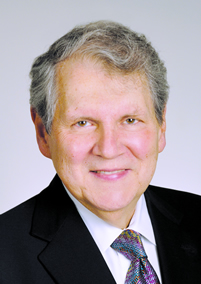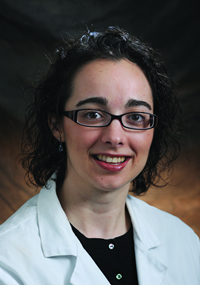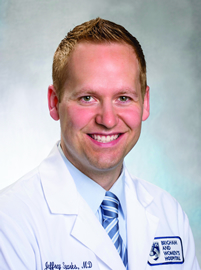Rheumatologists interested in conducting clinical or laboratory research face a daunting challenge when it comes to obtaining funding. In fact, a recent survey of ACR members found that funding was the most commonly cited barrier to a research career.
To address this issue, Representatives from the National Institutes of Health (NIH) and other funding organizations will address this issue during a session aimed at answering specific questions about types of grants, how to navigate the grant-writing process, and how the NIH Strategic Plan will help aspiring or already established rheumatology researchers.

“We have a specific commitment to the next generation of clinician scientists,” said Stephen I. Katz, MD, PhD, Director of the National Institute of Arthritis and Musculoskeletal and Skin Diseases (NIAMS), part of NIH. Dr. Katz, who has led NIAMS since 1995 and whose own research focused on immunology and skin, will provide an introduction to the session Relevance of the NIH Research Strategic Plan: Roadmap from Concept to Successful Grant Application. He will talk about the NIH Strategic Plan 2016-2020 and its relevance to early-stage investigators and how the plan impacts the research landscape. The session will take place from 9:00 – 10:30 am Wednesday in room 206.
“The Strategic Plan was developed with broad input from the scientific community and addresses not only biomedical research opportunities, but also stewardship of biomedical research, including recruiting and retaining an outstanding biomedical research workforce,” Dr. Katz said.
During his talk, Dr. Katz will also outline some of the steps NIH has taken to help support early-stage investigators. For example, the agency offers mentored career development awards, known as K grants, which he said help address some of the unique challenges facing clinician-researchers.

Alexis Ogdie-Beatty, MD, MSCE, Assistant Professor of Medicine at the Hospital of the University of Pennsylvania in Philadelphia, will moderate the session; she said that attendees will hopefully come away with a better understanding of what funding opportunities are available.
“There are many resources out there to help, and NIH program officers (and people managing grants from other organizations) want to help and be a resource during grant preparation,” Dr. Ogdie-Beatty said. “There are a lot of great ideas out there, so knowing how to prepare the grant and sell the idea is as important as the actual idea in most situations.”
The session will also provide opportunities for investigators to ask specific questions about NIH award programs and about others such as those from the Rheumatology Research Foundation. During a roundtable discussion during the session, both grant-writing experts and potential career mentors will be available.

Jeffrey A. Sparks, MD, MMSc, a rheumatologist and population scientist at Brigham and Women’s Hospital in Boston, also will speak during the session, highlighting funding opportunities for early career investigators. He noted that this will be an interactive session, with the hope that researchers can ensure their projects match up with the appropriate organizations and funding mechanisms, and that timing and other details of grant writing are properly understood.
“We think this will be a valuable opportunity for young investigators,” Dr. Katz said. “NIH receives many outstanding applications for funding, so grantsmanship is important.”
BASIC SCIENCE TRACK
Relevance of the NIH Research Strategic Plan: Roadmap from Concept to Successful Grant Application
9:00 – 10:30 am Wednesday • Room 206
